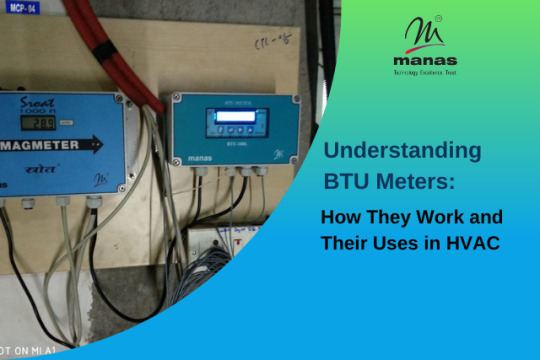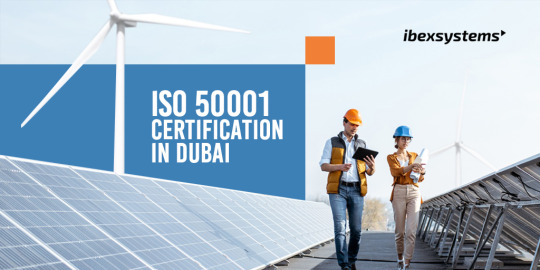#EnergyManagementSystem
Explore tagged Tumblr posts
Text
Energy Management System
Energy management system (EMS) is a framework for energy consumers, including industrial, commercial, and public sector organizations, to manage their energy use. It facilitates the identification of opportunities to adopt and enhance energy-saving technologies, including those not requiring substantial capital investment. Successful EMS implementation typically necessitates specialized expertise and staff training.
Benefits of Energy Management
Cost Reduction
Self-Learning Algorithm-Based Predictive Maintenance
Reduced Carbon Footprint
Enhanced Wellbeing & Productivity
Return-on-Investment
Improved Brand Image
Reduced Carbon Emissions
Greater Control Over Energy Consumption
Measurable Results
Customized Reports
0 notes
Text
ISO 14001 2015 EMS
Get certified in ISO 14001 2015 EMS with KBS Certification's CQI IRCA-approved training in India. Our comprehensive program equips you with the knowledge and skills to effectively manage environmental responsibilities within your organization. With our expert trainers and interactive sessions, you'll gain a deep understanding of the latest environmental management practices and regulations
0 notes
Text
ISO ⚡50001 Certification | Energy management systems | B4Q Management Ltd. For more information 🌐 https://b4qm.com ☎️+91 8851447640 ✉ [email protected]
#isocertification#ISOCertified#ISOCertifiedCompany#isocertificationbody#ISOcertificate#ISOCERTIFIEDBUSINESS#ISO#ISO50001#energymanagement#energy#energysaving#EnergyManagementSystem
0 notes
Text
#PhasorMeasurementUnit#GEAutomation#WideAreaMonitoring#PowerSystemStability#MiCOMP847#SmartGridTechnology#Synchrophasors#IEEEStandardCompliant#RealTimeMonitoring#PowerSystemControl#WAMPACSolutions#SubstationAutomation#EnergyManagementSystems#AdvancedFrequencyTracking#GridResilience
0 notes
Text
EV Energy Management Systems (EVEMS)
November 28, 2024
by dorleco
with no comment
eMOBILITY CONTROLS
Edit
Introduction

The increasing use of electric cars (EVs) is a significant change in the global transportation scene. More than 16.5 million EVs were in use globally by the end of 2021, quadrupling from 2018. As EVs gain popularity, there is a corresponding increase in the need for electricity, which presents both opportunities and challenges for energy management. To balance these demands, enhance infrastructure usage, and guarantee the sustainability of electric mobility, smart EV energy management systems, or EVEMS, have become an essential option.
The Rise of EVs and Energy Demands

The energy use of EVs adds to the strain on electrical systems as they become more common. By 2030, 4–10% of power consumption may come from EV charging during times of peak demand, according to the International Energy Agency’s Global EV Outlook 2020. However, the majority of cars — EVs included — stay parked for almost 95% of the time, indicating a discrepancy between charging requirements and patterns of energy usage.
In cities like Canada, where EV usage is increasing, this discrepancy becomes very problematic. Residential and commercial buildings with multiple uses must balance the need to provide charging infrastructure with the need to prevent excessive energy consumption that can overwhelm the grid. Energy Management Systems offers a clever, effective way to deal with these difficulties.
Challenges to the Adoption of EVs
EVs confront several obstacles despite their growing popularity and environmental benefits:
1. Insufficient Infrastructure for Charging
One of the biggest obstacles is still the absence of accessible and dependable charging facilities, especially in rural and undeveloped areas. Potential EV users are further deterred by range anxiety, the worry of running out of battery without access to a charger. Although it is necessary, expanding the infrastructure for charging is costly and time-consuming.
2. Electrical Grids Overloaded

Electrical grids may experience severe strain as a result of the quick uptake of EVs, particularly during times of high demand. Grid overload can result in blackouts, jeopardize system dependability, and raise energy providers’ operating expenses.
3. Limited Availability of Essential Minerals
Rare earth elements like nickel, cobalt, and lithium are essential to EV batteries. As the demand for these minerals grows, supply chain issues arise, costs rise, and mining and production-related environmental issues are brought to light. Production of EVs may encounter severe obstacles in the absence of efficient resource management.
The Role of EV Energy Management System
To address these issues, smart EV energy management systems optimize energy use, improve charging infrastructure, and maintain grid stability. EVEMS can help in the following ways:
1. Effective Utilization of Infrastructure for Charging
By examining energy costs, renewable energy production, and consumption, smart energy management systems maximize the charging infrastructure already in place. This guarantees dependable and easily accessible charging solutions while lowering the need for expensive upgrades. By reducing downtime and improving user convenience, mobile apps and software can also provide EV drivers with real-time information regarding the availability and condition of charging stations.
2. Grid stability and load balancing
EVEMS can coordinate charging schedules to alleviate grid overload. These systems better evenly distribute energy consumption throughout the day by promoting off-peak charging. In addition to lessening the burden on grids, this optimizes the usage of renewable energy sources, such as solar and wind, which are frequently more plentiful during off-peak hours.
A smart EVEMS might, for instance, give priority to charging at night when overall grid demand is low or in the early afternoon when solar generation is at its highest. This lessens dependency on fossil fuels and increases grid dependability.
3. Battery Recycling and Monitoring
The performance and sustainability of EVs depend heavily on their batteries. EVEMS can prolong battery life, optimize charging practices, and monitor battery health. By monitoring the lifecycle of batteries and making it easier to recover necessary components, these systems also promote battery recycling. Recycling minimizes waste, lessens the carbon impact of EV batteries, and eliminates the need for new mining operations.
Benefits of EV Energy Management System for Consumers

In addition to solving major issues, smart EV energy management systems provide individual EV owners with a number of advantages.
1. Comprehensive Analysis
EVEMS gives users detailed information about their driving behaviors, charging habits, and energy usage. For example, applications such as Tesla provide comprehensive information to assist drivers in determining the best time and method for charging their cars. Customized suggestions, such as charging at off-peak times, can lower energy expenses and boost productivity.
2. Financial Savings
By maximizing charging schedules and reducing energy loss, smart energy management assists EV owners in saving money. Monitoring charging efficiency in real-time guarantees efficient energy use, which lowers power costs and improves total cost-effectiveness.
3. A Better User Experience
Intelligent scheduling and user-friendly interfaces improve the pleasure of owning an EV. Based on a user’s driving patterns, smart EVEMS may generate customized charging schedules, guaranteeing that their car is always prepared when needed. Long-distance travel is also less stressful with real-time data on charging station availability and route optimization.
4. Extended Battery Life
EVEMS assists in the early detection of possible battery problems and offers practical suggestions to preserve battery health by tracking variables like charging temperature and usage trends. As a result, fewer replacements are required, conserving money and resources.
Improving Grid, EV, and Charging Infrastructure Synchronization
The capacity of advanced EVEMS to synchronize the demands of EV drivers, charging stations, and power grids is one of their most notable capabilities. EVEMS maintains the equilibrium between energy supply and demand by permitting two-way communication between these organizations. Dynamic pricing schemes, for example, can encourage EV users to charge during off-peak hours, which will lessen the strain on the grid and save energy expenses.
Drivers are also able to design effective routes and steer clear of needless detours because of EVEMS’s real-time updates. This increases the sustainability of EV travel by lowering energy usage and saving time.
Reduced Utilization of Rare Earth Substances
As worries about the effects of rare earth mineral mining on the environment grow, EVEMS is essential to reducing resource usage. These technologies lessen the need for new batteries and related raw material extraction by maximizing battery performance and promoting recycling. Additionally, by teaching customers about appropriate recycling and disposal procedures, EVEMS may guarantee a more sustainable lifecycle for EV parts.
Considerations for EV Energy Management System Implementation

Organizations must address several crucial aspects to deploy EVEMS successfully:
Current Infrastructure Assessment: For successful implementation, it is essential to comprehend the current energy landscape. Ensuring that software and hardware components function flawlessly across many platforms is known as integration and interoperability.
Scalability: Creating systems that can change to accommodate rising EV adoption rates and developing technological advancements.
Cyber security: safeguarding user information and maintaining system dependability against possible online attacks.
Conclusion: Driving the Future of Electric Mobility
At the forefront of innovative sustainable transportation is EV energy management systems. In addition to facilitating the mass adoption of EVs, EVEMS also ensures their long-term viability by tackling issues including resource shortages, grid overload, and inadequate infrastructure.
Collaboration between automakers, energy providers, governments, and researchers is necessary for the future. Maximizing the advantages of EVEMS will require standardizing technologies, incorporating renewable energy sources, and encouraging innovation.
In the end, intelligent EV energy management systems are an essential first step toward a future of transportation that is cleaner, more effective, and more sustainable — one in which EVs not only transform mobility but also support a robust energy ecosystem.
At Dorleco, we are revolutionizing the EV landscape with cutting-edge solutions like smart Vehicle Control Units (VCUs), CAN Displays, CAN Keypads, & EV Software Services. Our innovative technologies empower efficient energy management, optimize charging infrastructure, and enhance grid stability, enabling seamless EV adoption. With a focus on sustainability, our products ensure cost-effective, reliable, and user-friendly EV experiences while addressing challenges like grid overload and resource optimization. Choose Dorleco — your partner in driving a smarter, greener future in electric mobility.
#EnergyManagementSystems#EVInfrastructure#Dorleco#CANKeypads#CANDisplays#VCUs#Vehiclecontrolunit#EVSoftwareServices
0 notes
Text
Essential Learnings In Energy Management Systems lead Auditing
The Energy Management Systems Lead Auditor Training equips professionals with key skills to audit ISO 50001:2018 standards effectively. This course covers energy management principles, audit planning, execution, and reporting. Through hands-on examples and expert insights, participants gain the knowledge to identify energy-saving opportunities, ensuring compliance and efficiency in energy management.

0 notes
Text
#sodiumionbattery#lithiumionbattery#energy#startupindonesia#solidstatebattery#fastcharging#energymanagementsystem#batterymanagementsystem#startupenergy#energystorage#lectro#sodiumion#visit#mab#teslavision#lincs#sodiumbattery#battery#bestforev#electriccar#electricvehiclecharging#chargingstations#manufacturing#modely#teslamodely#autosemiconductor#sustainablemobility#futurride#cargotransport#lincsvan
0 notes
Text
Our intelligent energy management software control system is designed to reduce energy consumption, improve the utilization of the current system. For #EnergyManagementSystems, click: https://inergysystems.com/services/energy-management-services/

0 notes
Text
BTU meters for HVAC
BTU meters are an important tool for calculating how much energy is used by heating and cooling systems. Building managers can monitor energy use, enhance system performance, and lower energy costs by being aware of BTU meters' numerous applications in HVAC systems.
Read this blog to learn more about what a BTU meter is, how it functions, and the different ways it may be used in HVAC systems.
https://manasmicro.com/understanding-btu-meters-how-they-work-and-their-uses-in-hvac/

#manasmicro #flowmetermanufacturer #btumeter #hvac #chillerapplication #airconditioning #btumetering #coolingsystems #AirConditioningSystem #hvacsystem #datacenter #EnergyConsumption #energymeter #Heatmeter #energycal #BTU #heatapplication #support #BACnet #Modbus #ModbusRTU #modbusip #buildingmanagement #EnergyManagementSystem
0 notes
Link
#digitalassetmanagementsystem#industrialiotsolution#spacemanagementsystem#visitormanagementsystem#buildingmanagementsystem#buildingautomationsystem#energymanagementsystem
1 note
·
View note
Text
ISO 14001:2015 EMS (Environmental Management System)
KBS Certification provides you with CQI IRCA-approved ISO 14001 2015 EMS (Environmental Management System) Training in India.
0 notes
Photo

By implementing ISO 50001 Energy Management System, you can establish an energy policy with concrete objectives and processes to achieve them. Contact Ibex Systems for ISO 50001 Certification in Dubai. For more info - https://www.ibexsystems.net/management-consulting/iso-50001/
#iso#iso50001#iso50001:2018#iso50001:2018certification#iso50001certification#energymanagementsystem#iso consulting#consulting services
0 notes
Text
Top Benefits Of Becoming A Certified Energy Management Systems Lead Auditor
Becoming a certified Energy Management Systems Lead Auditor through Edullence offers top benefits such as enhanced career opportunities, expertise in sustainability practices, and improved organizational efficiency. Start with our Energy Management Systems Foundation Training Course to pave your way to success.
https://edullence.com/top-benefits-of-becoming-a-certified-energy-management-systems-lead-auditor/
1 note
·
View note
Photo

An energy management system is typically a set of computer-aided tools used by electric facility operators to monitor, control, and optimise the performance of the generation and/or transmission system. Various computer-aided tools are used, ranging from short-term control modules to the scheduling or commitment of power production units on a daily/weekly basis. Read more @ https://cmiinfoistic.blogspot.com/2022/04/the-ultimate-guide-to-energy-management.html
#coherentmarketinsights#coherentmarketinsightsreports#EnergyManagementSystem#EnergyManagementSystemMarket#InformationTechnology
0 notes